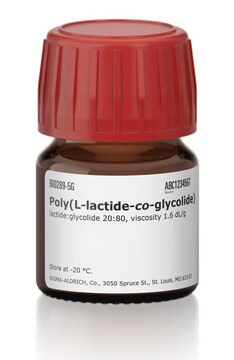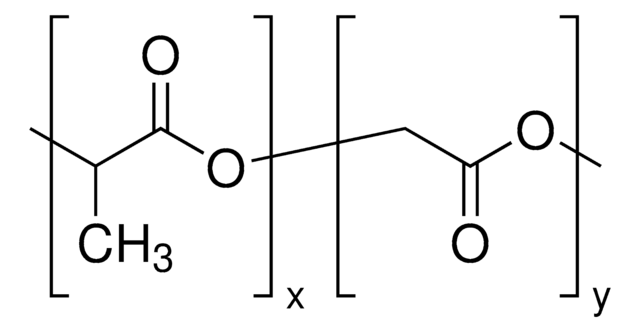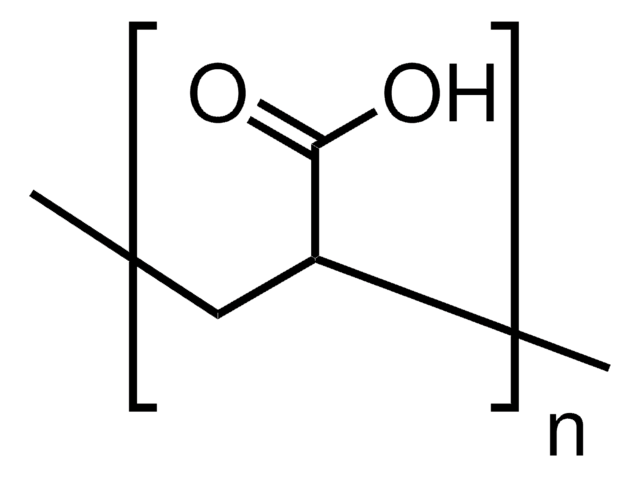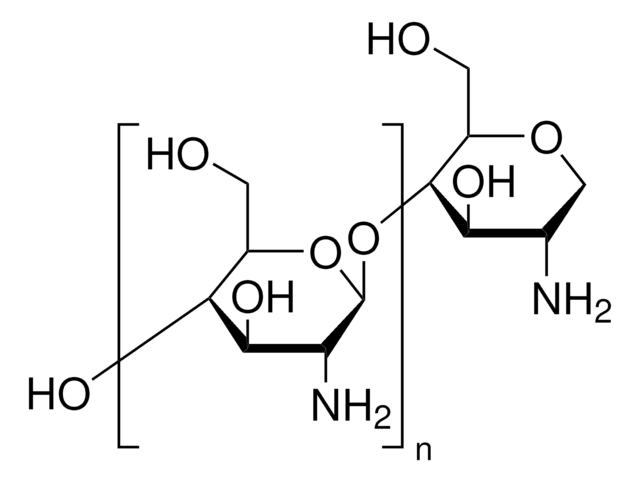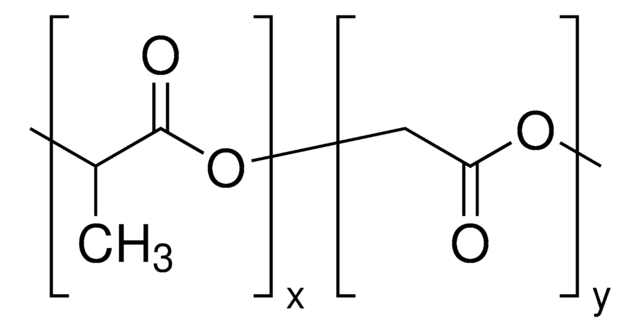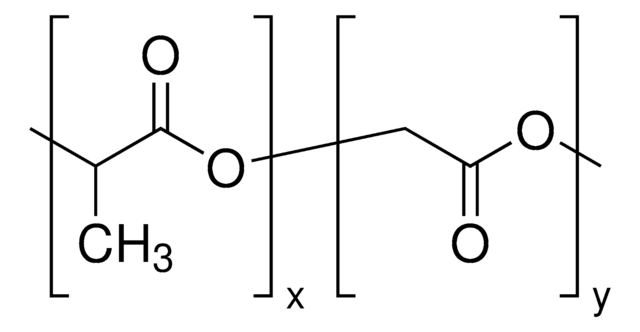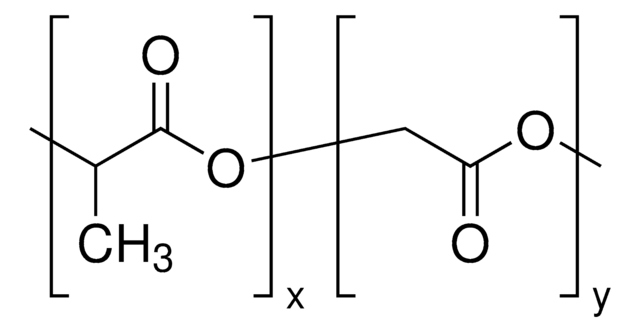901021
Poly(L-lactide-co-glycolide)
10:90, viscosity 1.7 dL/g
Synonym(e):
PLGA
About This Item
Empfohlene Produkte
Qualitätsniveau
Form
chips
Zufuhrverhältnis
lactide:glycolide 10:90±5
Farbe
light yellow to tan
Viskosität
1.4-2.0 dL/g
1.7 dL/g
Versandbedingung
dry ice
Lagertemp.
−20°C
Allgemeine Beschreibung
Anwendung
Lagerklassenschlüssel
11 - Combustible Solids
WGK
WGK 3
Flammpunkt (°F)
Not applicable
Flammpunkt (°C)
Not applicable
Hier finden Sie alle aktuellen Versionen:
Analysenzertifikate (COA)
Die passende Version wird nicht angezeigt?
Wenn Sie eine bestimmte Version benötigen, können Sie anhand der Lot- oder Chargennummer nach einem spezifischen Zertifikat suchen.
Besitzen Sie dieses Produkt bereits?
In der Dokumentenbibliothek finden Sie die Dokumentation zu den Produkten, die Sie kürzlich erworben haben.
Kunden haben sich ebenfalls angesehen
Artikel
Professor Nicola Tirelli (Istituto Italiano di Tecnologia, Italy) highlights the microfluidic-assisted method for fabricating well-defined and reproducible nanoparticles for drug delivery research.
Professor Nicola Tirelli (Istituto Italiano di Tecnologia, Italy) highlights the microfluidic-assisted method for fabricating well-defined and reproducible nanoparticles for drug delivery research.
Professor Nicola Tirelli (Istituto Italiano di Tecnologia, Italy) highlights the microfluidic-assisted method for fabricating well-defined and reproducible nanoparticles for drug delivery research.
Unser Team von Wissenschaftlern verfügt über Erfahrung in allen Forschungsbereichen einschließlich Life Science, Materialwissenschaften, chemischer Synthese, Chromatographie, Analytik und vielen mehr..
Setzen Sie sich mit dem technischen Dienst in Verbindung.